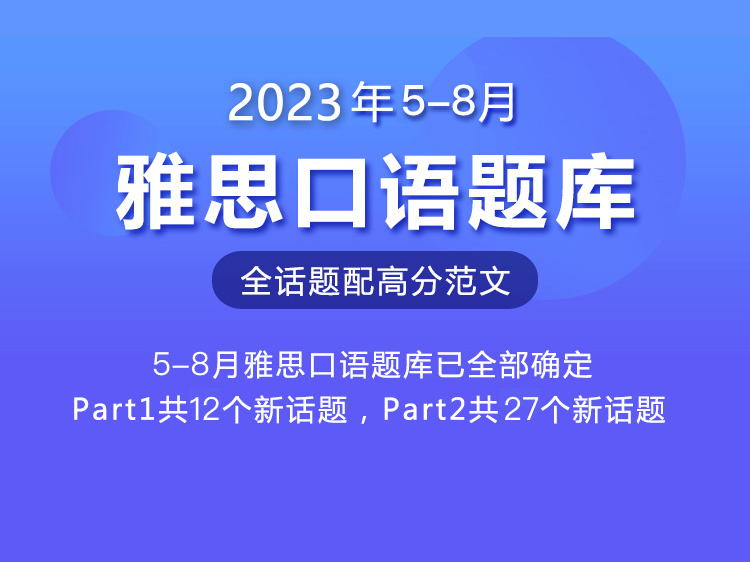【小站独家】雅思阅读全真模考题:智力的开端
- 2016年07月27日15:13 来源:小站教育作者:小站雅思编辑
- 参与(3) 阅读(36965)
小站雅思名师讲堂从今天开始和大家分享一系列阅读仿真模拟题,可以说与雅思真题99%相似,是烤鸭在剑桥雅思之余的良好调剂品。烤鸭们可以先自己试着做一做,做完之后可以对下答案,再看看小站名师的悉心讲解。本篇阅读的标题:智力的开端。
The beginning of intelligence
A No one doubts that intelligence develops as children grow older. Yet the concept of intelligence has proved both quite difficult to define in unambiguous terms and unexpectedly controversial in some respects. Although, at one level, there seem to be almost as many definitions of intelligence as people who have tried to define it, there is broad agreement on two key features. That is, intelligence involves the capacity not only to learn from experience but also to adapt to one's environment. However, we cannot leave the concept there. Before turning to what is known about the development of intelligence, it is necessary to consider whether we are considering the growth of one or many skills. That question has been tackled in rather different ways by psychometricians(心理测量师)and by developmentalists.
B The former group has examined the issue by determining how children's abilities on a wide range of tasks intercorrelate, or go together. Statistical techniques have been used to find out whether the patterns are best explained by one broad underlying capacity, general intelligence, or by a set of multiple, relatively separate, special skills in domains such as verbal and visuospatial ability. While it cannot be claimed that everyone agrees on what the results mean, most people now accept that for practical purposes it is reasonable to suppose that both are involved. In brief,the evidence in favour of some kind of general intellectual capacity is that people who are superior (or inferior) on one type of task tend also to be superior (or inferior) on others. Moreover, general measures of intelligence tend to have considerable powers to predict a person's performance on a wide range of tasks requiring special skills. Nevertheless, it is plain that it is not at all uncommon for individuals to be very good at some sorts of task and yet quite poor at some others.
C Furthermore the influences that affect verbal skills are not quite the same as those that affect other skills. This approach to investigating intelligence is based on the nature of the task involved, but studies of age-related changes show that this is not the only, or necessarily the most important, approach. For instance, some decades ago, Horn and Cattell argued for a differentiation between what they termed 'fluid' and 'crystallised' intelligence. Fluid abilities are best assessed by tests that require mental manipulation of abstract symbols. Crystallised abilities, by contrast, reflect knowledge of the environment in which we live and past experience of similar tasks; they may be assessed by tests of comprehension and information. It seems that fluid abilities peak in early adult life, whereas crystallised abilities increase up to advanced old age.
D Developmental studies also show that the interconnections between different skills vary with age. Thus in the first year of life an interest in perceptual patterns is a major contributor to cognitive abilities, whereas verbal abilities are more important later on. These findings seemed to suggest a substantial lack of continuity between infancy and middle childhood. However, it is important to realize that the apparent discontinuity will vary according to which of the cognitive skills were assessed in infancy. It has been found that tests of coping with novelty do predict later intelligence. These findings reinforce the view that young children's intellectual performance needs to be assessed from their interest in and curiosity about the environment, and the extent to which this is applied to new situations, as well as by standardised intelligence testing.
E These psychometric approaches have focused on children’s increase in cognitive skills as they grow older. Piaget (著名儿童教育学家) brought about a revolution in the approach to cognitive development through his arguments (backed up by observations) that the focus should be on the thinking processes involved rather than on levels of cognitive achievement. These ideas of Piaget gave rise to an immense body of research and it would be true to say that subsequent thinking has been heavily dependent on his genius in opening up new ways of thinking about cognitive development. Nevertheless, most of his concepts have had to be so radically revised, or rejected, that his theory no longer provides an appropriate basis for thinking about cognitive development. To appreciate why that is so, we need to focus on some rather different elements of Piaget’s theorising.
F The first element, which has stood the test of time, is his view that the child is an active agent of learning and of the importance of this activity in cognitive development. Numerous studies have shown how infants actively scan their environment; how they prefer patterned to non-patterned objects, how they choose novel over familiar stimuli, and how they explore their environment as if to see how it works. Children's questions and comments vividly illustrate the ways in which they are constantly constructing schemes of what they know and trying out their ideas of how to fit new knowledge into those schemes or deciding that the schemes need modification. Moreover, a variety of studies have shown that active experiences have a greater effect on learning than comparable passive experiences. However, a second element concerns the notion that the development proceeds through a series of separate stages that have to be gone through step-by-step, in a set order, each of which is characterized by a particular cognitive structure. That has turned out to be a rather misleading way of thinking about cognitive development, although it is not wholly wrong.
Questions 14-17
Choose the correct letter, A, B, C, or D.
Write your answers in boxes 27-30 on your answer sheet
14 Most researchers accept that one feature of intelligence is the ability to
A change our behaviour according to our situation.
B react to others' behaviour patterns.
C experiment with environmental features.
D cope with unexpected setbacks.
15 What have psychometricians used statistics for?
A to find out if cooperative tasks are a useful tool in measuring certain skills
B to explore whether several abilities are involved in the development of intelligence
C to demonstrate that mathematical models can predict test results for different skills
D to discover whether common sense is fundamental to developing children's abilities
16 Why are Horn and Cattell mentioned?
A They disagreed about the interpretation of different intelligence tests.
B Their research concerned both linguistic and mathematical abilities.
C They were the first to prove that intelligence can be measured by testing a range of special skills.
D Their work was an example of research into how people's cognitive skills vary with age.
17 What was innovative about Piagct's research?
A He refused to accept that children developed according to a set pattern.
B He emphasised the way children thought more than how well they did in tests.
C He used visually appealing materials instead of traditional intelligence tests.
D He studied children of all ages and levels of intelligence.
Questions 18-22
Do the following statements agree with the information given in Reading Passage 3?
In boxes 31-36 on your answer sheet, write
YES if the statement is true
NO if the statement is false
NOT GIVEN if the information is not given in the passage
18 A surprising number of academics have come to the same conclusion about what the term intelligence means.
19 A general test of intelligence is unlikely to indicate the level of performance in every type of task.
20 The elderly perform less well on comprehension tests than young adults.
21 We must take into account which skills are tested when comparing intelligence at different ages.
22 Piaget's work influenced theoretical studies more than practical research.
Questions 23-26
Complete the summary using the list of words, A-1, below.
Write your answers in boxes 37-40 on your answer sheet.
Researchers investigating the development of intelligence have shown that 23 skills become more significant with age. One good predictor of 24 intelligence is the degree to which small children are 25 about their surroundings and how much interest they show on finding themselves in an 26 setting.
A adult B practical C verbal
D spatial E inquisitive F uncertain
G academic H plentiful I unfamiliar











































